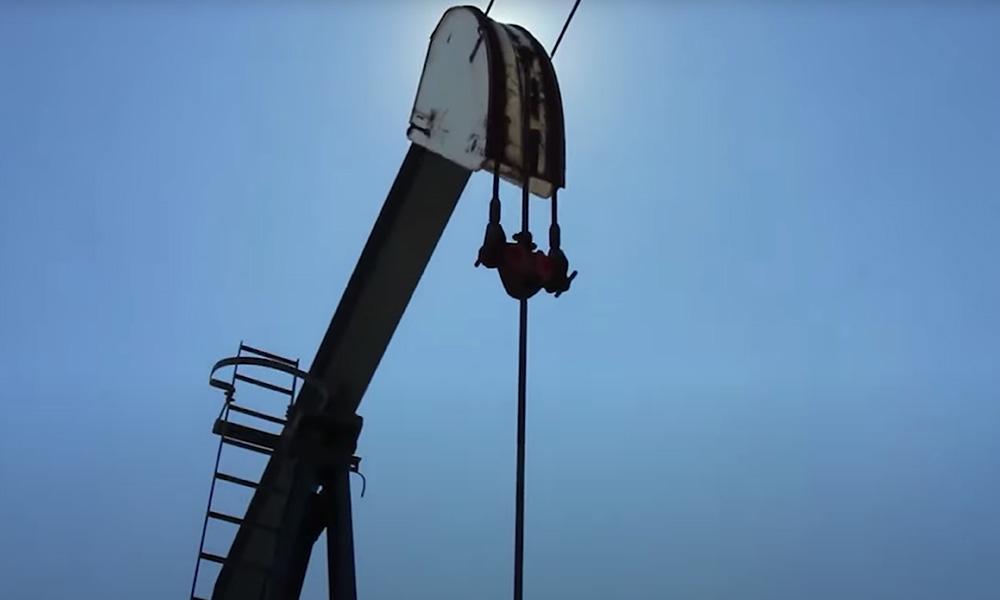Trump and Putin agreed to meet again. The situation in Ukraine took a sharp turn for the worse, and oil prices plummeted to a new low in more than five months.
2025-10-17 10:37:31

Trump said he and Putin may meet in Budapest within the next two weeks after a more than two-hour phone call, calling the conversation productive. The Kremlin has confirmed the meeting, but neither side has announced a specific date.
Trump later told reporters at the White House, "I've been making deals all my life, and I think we're going to make a deal this time, hopefully soon."
The development comes as Ukrainian President Volodymyr Zelensky was planning to arrive at the White House later on Friday to seek additional military support, including long-range U.S.-made Tomahawk missiles.
Doubts about new aid to Ukraine
In recent days, the White House has shown a tendency to meet Zelensky's request and is increasingly losing patience with Putin.
However, Trump's conciliatory stance after his call with Russia cast a shadow over the possibility of aid to Ukraine in the near future and reignited European concerns that the United States would compromise with Moscow.
Since taking office in January, Trump has repeatedly threatened action against Russia, but has consistently postponed such measures after phone calls with Putin. Trump unsuccessfully sought a ceasefire before the August Alaska summit. Analysts at the time suggested that Putin had no intention of ending the conflict despite receiving concessions from the US. Another goal Washington sought at the time—a three-way meeting between Putin, Zelensky, and Trump—has never materialized, and there are currently no immediate plans for such talks.
The Republican president, who has cast himself as a peace broker and touted his diplomatic achievements, including the recent Gaza peace ceasefire, has said he believed the Russia-Ukraine conflict, which began in 2022, should have been easier to resolve.
Dan Fried, a former U.S. State Department official, noted: " Putin is trying to reverse the momentum of pressure on Russia. It remains to be seen how this will play out, but the likelihood of forcing a ceasefire by pressuring Russia seems to have diminished. "
Putin warns Trump against providing missiles
Kremlin aide Yuri Ushakov told reporters that Putin warned Trump during the call that providing Ukraine with long-range missiles would undermine the peace process and damage U.S.-Russia relations.
Trump later quipped to reporters: "Will he say please sell Tomahawk missiles? No, he doesn't want Ukraine to have these missiles that he calls deadly weapons."
Zelensky, who has arrived in Washington, said Putin's decision to seek talks showed he was on the defensive. "We have seen that Moscow was eager to restart dialogue as soon as it heard about the Tomahawk missiles," he wrote on the social media platform X.
The choice of Hungary as the venue for the Trump-Putin summit has raised concerns, as Putin's travel has been restricted due to allegations of war crimes in some jurisdictions.
Tensions between Ukraine and Hungary are rising. Last month, Volodymyr Zelensky accused Hungarian drones of crossing the border into Ukraine. Hungarian Prime Minister Viktor Orban responded by stating that Ukraine is not an independent, sovereign state. Unlike most NATO and EU leaders, Orban has maintained friendly relations with Russia and questioned the logic of Western military aid to Kyiv.
Orban said on X: "The planned meeting between the US and Russian presidents is good news for peace-loving people around the world. We are ready!" He then revealed that he had spoken with Trump on the phone and that preparations for the US-Russia peace summit were underway.
The "Trump-Putin meeting" is expected to take place next week after talks between U.S. Secretary of State Marco Rubio and a delegation led by Russian Foreign Minister Sergei Lavrov, with the location to be determined.
Trump posted on his social media platform Truth Social that he would brief Zelensky on the talks with Russia in the Oval Office of the White House later on Friday.
Ukraine wants to expand its attack range
As the conflict approaches its fourth anniversary, Kyiv and Moscow are escalating their conflict and launching large-scale attacks on energy infrastructure. NATO is struggling to effectively respond to a series of Russian air incursions.
Ukraine wants missiles that can reach Moscow and other major Russian cities.
Zelensky said Russia launched more than 300 drones and 37 missiles against infrastructure across Ukraine during Thursday's offensive. Kyiv has intensified its attacks on Russian targets, including Thursday's assault on an oil refinery in Saratov Oblast.
Trump has continued to issue warnings to Russia in recent days, and he said on Wednesday that Indian Prime Minister Narendra Modi had agreed to stop buying Russian oil.
This meeting may create a brief "window of peace" in the crude oil market, likely weighing on prices in the short term . On Thursday, US crude oil plummeted over 3%, and in Asian trading on Friday, prices continued their decline, falling 0.84% to $56.51 per barrel, a low since early May. However, this diplomatic game is extremely fragile, with the battlefield still raging and deep-seated conflicts beneath it. Trading logic in the crude oil market will rapidly shift between this "dawn of hope" and the "harsh reality," potentially increasing volatility . The market needs to closely monitor the final decision on the Tomahawk missile, which will be the next most direct indicator.
At 10:36 Beijing time, U.S. crude oil continued to trade at $56.72 per barrel.
- Risk Warning and Disclaimer
- The market involves risk, and trading may not be suitable for all investors. This article is for reference only and does not constitute personal investment advice, nor does it take into account certain users’ specific investment objectives, financial situation, or other needs. Any investment decisions made based on this information are at your own risk.





















